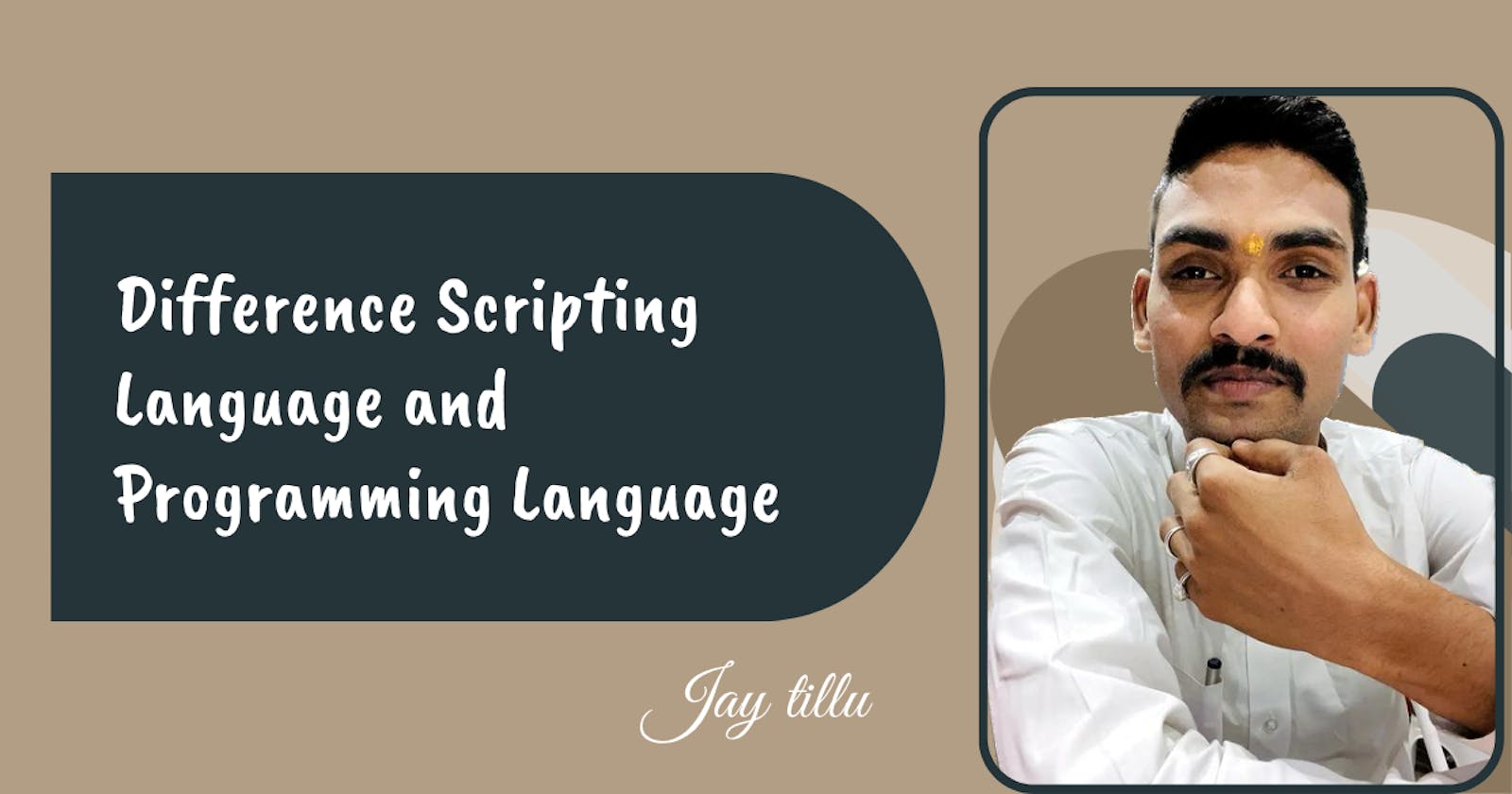What is the Difference between Scripting Language and Programming Language?
3 min read

First of all, remember that the exact difference between both them is very blurry and in today’s condition it is not that important as well. But if you want to be a good programmer then you should have clear clarity about these two terms.
The difference between both of them is based on their compilation process.
Scripting Languages
Scripting languages don’t require to be compiled rather they are interpreted. This means scripting languages used an interpreter to convert their code into native machine code.
Here also remember that scripting languages run slower than programming languages. And also they cannot directly access the low-level details of the hardware.
For example, your C program needs a compiler to convert its code into native machine code. But on the other hand, JavaScript doesn’t need a compiler rather it uses an interpreter to convert its code into native machine code. So that’s why JavaScript is sometimes called the “Scripting Language”.
Application of Scripting Language
To automate certain tasks (Build Systems like Gradle use scripts for automation)
Extracting information from a set of data
Examples of Scripting Language (These languages are traditionally used without explicit compilation process. But today some of them may vary.)
Lua
Perl
Python
PHP
VBScript
Programming Languages
Programming languages are the languages that need a compiler to convert their code into native machine code. Programming languages run faster compare then scripting languages. Also, programming languages can access low-level hardware details.
Examples of Programming Language
Java
Kotlin
C
C++
Scala
Groovy
But while classifying the language as scripting or programming, the environment on which it is deployed is also the major point of consideration. That is because we can design a compiler or an interpreter for any language according to our needs. We can also design interpreters for C++, C, or any other language as well.
For example, Python is widely used without a compiler, but the main implementation of CPython needs a compiler. The same goes for JavaScript as well. So the deployment is also a major consideration because we can design both compiler and interpreter for one language according to our needs.
I know today the difference between both of them is very blurry but as a programmer just remember the basic difference between them.
So, guys, that’s it for this article. Feel free to know me if I miss something and do Subscribe for more such content.
Till then Keep Coding, Keep Loving. Catch you up in the next article.
Jai Hind, Vande Mataram 🇮🇳
